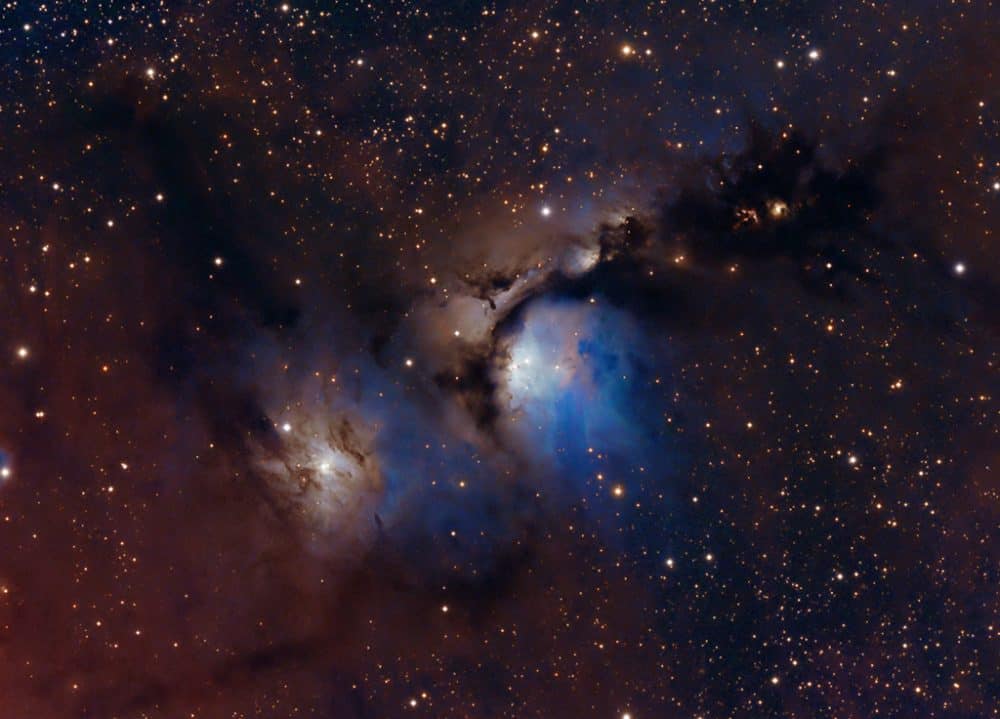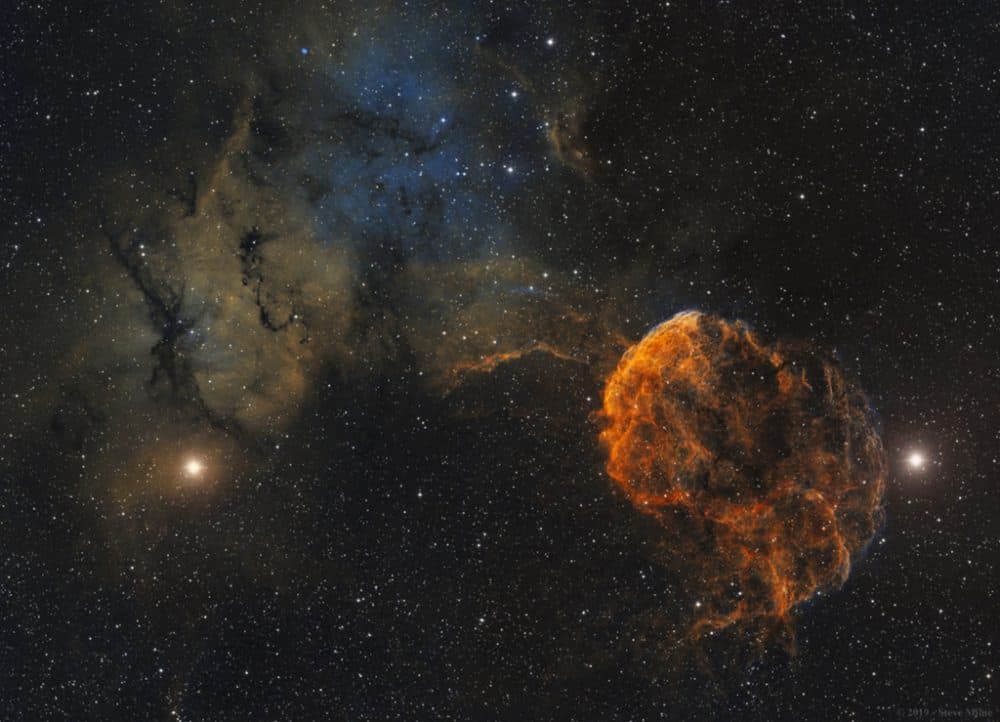Blog
Zakir Hussain (born 9 March 1951) is a tabla virtuoso, composer, percussionist, music producer, film actor and eldest son of legendary tabla player Ustad Allah Rakha.
He was awarded the Padma Shri in 1988, and the Padma Bhushan in 2002, by the Government of India presented by President Abdul Kalam. He was also awarded the Sangeet Natak Akademi Award in 1990, given by the Sangeet Natak Academy, India’s National Academy of Music, Dance & Drama. In 1999, he was awarded the United States National Endowment for the Arts‘ National Heritage Fellowship, the highest award given to traditional artists and musicians.
Zakir Hussain was born March 9, 1951 in a nursing home in Mahim at about 9:45 p.m. on a Friday. Hussain was born to tabla player Alla Rakha. His mother’s name was Bavi Begum. It was said that Hussain was an ‘unlucky’ child since his father was extremely ill around the time of his birth. A short while after his birth, a holy individual by the name of Gyani Baba appeared at Hussain’s house and told his mother to name their son Zakir Hussain. Although their family name is Qureshi, Zakir was given the surname Hussain. Gyani Baba predicted that Zakir would save Allah Rakha. Within four years, Allah Rakha’s health was back to normal. He attended St. Michael’s High School in Mahim, and briefly attended St. Xavier’s College, Mumbai.
more...Dorothy Jacqueline Keely (March 9, 1928 – December 16, 2017), better known as Keely Smith, was an American jazz and popular music singer, who performed and recorded extensively in the 1950s with then-husband Louis Prima, and throughout the 1960s as a solo artist.
Born in Norfolk, Virginia, Smith was of Irish and Cherokee ancestry. Jesse Smith, her stepfather, was a carpenter, and her mother took in laundry to earn money to buy gowns for Smith to wear when she performed.
When Smith was 11 years old, she sang regularly as a cast member of The Joe Brown Radio Gang program on a Norfolk station. At age 14, Smith sang with a naval air station band led by Saxie Dowell. At 15, she got her first paying job with the Earl Bennett band. She saw Louis Prima perform in New York City in 1949. They recorded together in 1949 and married on July 13, 1953.
Their songs included Johnny Mercer‘s and Harold Arlen‘s “That Old Black Magic,” which was a Top 20 hit in the US in 1958. At the 1st Annual Grammy Awards in 1959, Smith and Prima won the first Grammy for Best Performance by a Vocal Group or Chorus for “That Old Black Magic”. Her deadpan act was popular with fans. The duo followed up with the minor successes “I’ve Got You Under My Skin” and “Bei Mir Bist Du Schoen“, a revival of the 1937 Andrews Sisters hit.
more...Randolph Denard Ornette Coleman (March 9 or 19, 1930– June 11, 2015) was an American jazz saxophonist, violinist, trumpeter, and composer. In the 1960s, he was one of the founders of free jazz, a term he invented for his album Free Jazz: A Collective Improvisation. His “Broadway Blues” has become a standard and has been cited as an important work in free jazz. His album Sound Grammar received the 2007 Pulitzer Prize for music.
Coleman was born in 1930 in Fort Worth, Texas where he was raised.
In 1959 Atlantic released The Shape of Jazz to Come According to music critic Steve Huey, the album “was a watershed event in the genesis of avant-garde jazz, profoundly steering its future course and throwing down a gauntlet that some still haven’t come to grips with.” Jazzwise listed it No. 3 on their list of the 100 best jazz albums of all time.
Coleman’s quartet received a long – and sometimes controversial – engagement at Five Spot jazz club in New York City. Leonard Bernstein, Lionel Hampton, and Modern Jazz Quartet were impressed and offered encouragement. Hampton asked to perform with the quartet; Bernstein helped Haden obtain a composition grant from the John Simon Guggenheim Memorial Foundation. But trumpeter Miles Davis said Coleman was “all screwed up inside” although he recanted this comment and became a proponent of Coleman’s innovations.
Coleman’s early sound was due in part to his use of a plastic saxophone. He bought a plastic horn in Los Angeles in 1954 because he was unable to afford a metal saxophone, though he didn’t like the sound of the plastic instrument at first.
more...Interstellar dust clouds and bright nebulae abound in the fertile constellation of Orion. One of the brightest, M78, is near the center in this colorful telescopic view, covering an area north of Orion’s belt. At a distance of about 1,500 light-years, the bluish nebula itself is about 5 light-years across. Its blue tint is due to dust preferentially reflecting the blue light of hot, young stars in the region. Dark dust lanes and other nebulae can easily be traced through the gorgeous skyscape that includes many Herbig- Haro objects, energetic jets from stars in the process of formation. But missing from this image is McNeil’s nebula. A major discovery only recognized in 2004, the enigmatic, variable nebula was found along the dark lane of dust above and right of larger M78. McNeil’s nebula is associated with a protostar and seen to be sometimes present and sometimes absent in photos of the well-imaged region. McNeil’s nebula faded from view late last year and is still absent in this deep image recorded in February 2019.
more...Gábor István Szabó (March 8, 1936 – February 26, 1982) was a Hungarian American guitarist whose style incorporated jazz, pop, rock, and Hungarian music.
In 1961, Szabo became a member of quintet that was led by Chico Hamilton and included Charles Lloyd, playing what has been described as chamber jazz, with “a moderate avant-gardism”. Szabo was influenced by the rock music of the 1960s, particularly the use of feedback. In 1965 he was in a jazz pop group led by Gary McFarland, then worked again with Lloyd in an energetic quartet with Ron Carter and Tony Williams. The song “Gypsy Queen” from Szabo’s debut solo album Spellbinder became a hit for rock guitarist Carlos Santana. During the late 1960s, Szabo worked in a group with guitarist Jimmy Stewart He started the label Skye Records with McFarland and Cal Tjader.
more...George Edward Coleman (born March 8, 1935) is an American jazz saxophonist known for his work with Miles Davis and Herbie Hancock in the 1960s. In 2015, he was named an NEA Jazz Master.
After working with Ray Charles, Coleman started working with B.B. King in 1953, at which point he switched to tenor saxophone. In 1956 Coleman moved to Chicago, along with Booker Little, where he worked with Gene Ammons and Johnny Griffin before joining Max Roach‘s quintet (1958–1959). Coleman recorded with organist Jimmy Smith on his album Houseparty(1957), along with Lee Morgan, Curtis Fuller, Kenny Burrell, and Donald Bailey. Moving to New York City with Max Roach in that year, he went on to play with Slide Hampton (1959–1962), Ron Carter, Jimmy Cobb, and Wild Bill Davis (1962), before joining Miles Davis’ quintet in 1963–1964.
His albums with Davis (and the rhythm section of Herbie Hancock (piano), Ron Carter (bass), and Tony Williams (drums)) are Seven Steps to Heaven (1963), A Rare Home Town Appearance (1963), Côte Blues (1963), In Europe (1963), My Funny Valentine, and Four & More, both live recordings of a concert in Lincoln Center for the Performing Arts in New York Cityin February 1964. Shortly after this concert, Coleman was replaced by Wayne Shorter. Nevertheless, Davis retained a high opinion of Coleman’s playing, stating that “George played everything almost perfectly…He was a hell of a musician.” Coleman played with Lionel Hampton (1965–1966), also in 1965 on Chet Baker‘s The Prestige Sessions, with Kirk Lightsey, Herman Wright, and Roy Brooks. Clark Terry, Horace Silver, Elvin Jones (1968), Shirley Scott (1972), Cedar Walton (1975), Charles Mingus (1977–1978), Ahmad Jamal (1994, 2000), and many others.
more...John Smith Hurt (possibly March 8, 1892– November 2, 1966), better known as Mississippi John Hurt, was an American country blues singer and guitarist.
Raised in Avalon, Mississippi, Hurt taught himself to play the guitar around the age of nine. He worked as a sharecropper and began playing at dances and parties, singing to a melodious fingerpicked accompaniment. His first recordings, made for Okeh Records in 1928, were commercial failures, and he continued to work as a farmer.
Dick Spottswood and Tom Hoskins, a blues enthusiast, located Hurt in 1963 and persuaded him to move to Washington, D.C. He was recorded by the Library of Congress in 1964. This helped further the American folk music revival, which led to the rediscovery of many other bluesmen of Hurt’s era. Hurt performed on the university and coffeehouse concert circuit with other Delta blues musicians who were brought out of retirement. He also recorded several albums for Vanguard Records.
Hurt returned to Mississippi, where he died, in Grenada, a year later.
Material recorded by him has been re-released by many record labels. His songs have been recorded by Bob Dylan, Dave Van Ronk, Jerry Garcia, Beck, Doc Watson, John McCutcheon, Taj Mahal, Bruce Cockburn, David Johansen, Bill Morrissey, Gillian Welch, Josh Ritter, Chris Smither, Guthrie Thomas, Parsonsfield, and Rory Block. Hurt was born in Teoc, Carroll County, Mississippi, and raised in Avalon, Mississippi. He taught himself to play guitar at the age of nine, stealthily playing the guitar of a friend of his mother’s, who often stayed at the Hurt home while courting a woman who lived nearby. As a youth he played old-time music for friends and at dances. He worked as a farmhand and sharecropper into the 1920s.
World Music on Flamenco Fridays featuring Bulerias
more...Normally faint and elusive, the Jellyfish Nebula is caught in this alluring telescopic field of view. The entire scene is a two panel mosaic constructed using narrowband image data, with emission from sulfur, hydrogen and oxygen atoms shown in red, green and blue hues. It’s anchored right and left by two bright stars, Mu and Eta Geminorum, at the foot of the celestial twin. The Jellyfish Nebula itself is right of center, the brighter arcing ridge of emission with dangling tentacles. In fact, the cosmic jellyfish is part of bubble-shaped supernova remnant IC 443, the expanding debris cloud from a massive star that exploded. Light from the explosion first reached planet Earth over 30,000 years ago. Like its cousin in astrophysical waters the Crab Nebula supernova remnant, the Jellyfish Nebula is known to harbor a neutron star, the remnant of the collapsed stellar core. An emission nebula cataloged as Sharpless 249 fills the field at the upper left. The Jellyfish Nebula is about 5,000 light-years away. At that distance, this image would be about 300 light-years across.
more...Dan’s repertoire consists of originals and jazz standards, his music is the opposite of where the mainstream jazz sound is today.
Louis Albert Cottrell Jr. (March 7, 1911, New Orleans – March 21, 1978, New Orleans) was a Louisiana Creole jazz clarinetist and tenor saxophonist. He was the son of the influential drummer Louis Cottrell, Sr., and grandfather of New Orleans jazz drummer Louis Cottrell. As leader of the Heritage Hall Jazz Band, he performed at the famous Carnegie Hall in 1974.Louis Cottrell was born into an upper-class Creole musical family. His father, Louis “Old Man” Cottrell, Sr., was a famed drummer, and cornetist Manny Perez was his godfather. The young Cottrell grew up around such great musicians as Barney Bigard, John Robichaux, and A.J. Piron. Cottrell studied clarinet under Lorenzo Tio Jr. and Bigard. He began his career in the 1920s with the Golden Rule Orchestra, and then in 1925 played with Paul “Polo” Barnes. Later in the 1920s he worked with Chris Kelly and Kid Rena, then in 1929 found work on the riverboat SS Island Queen with Lawrence Marrero‘s Young Tuxedo Brass Band and Sidney Desvigne. These were the years when he became a prominent union organizer. He joined Don Albert‘s orchestra soon after, recording an album with the orchestra in 1935 under the Vocalion label. He tried his hand at composing, and with Lloyd Glenn and Albert wrote, “You Don’t Love Me (True).” Rhythm and blues bandleader Paul Gayten would later approach Cottrell to record “You Don’t Love Me” and it became one of the first hits of the R & B New Orleans era, having made it to the number 5 spot nationally on the R & B top ten charts. Cottrell toured widely throughout North America with Albert until 1939.
Joseph Maurice Ravel (/rəˈvɛl/; French: [ʒozɛf mɔʁis ʁavɛl]; 7 March 1875 – 28 December 1937) was a French composer, pianist and conductor. He is often associated with impressionism along with his elder contemporary Claude Debussy, although both composers rejected the term. In the 1920s and 1930s Ravel was internationally regarded as France’s greatest living composer.
Born to a music-loving family, Ravel attended France’s premier music college, the Paris Conservatoire; he was not well regarded by its conservative establishment, whose biased treatment of him caused a scandal. After leaving the conservatoire, Ravel found his own way as a composer, developing a style of great clarity, incorporating elements of baroque, neoclassicism and, in his later works, jazz. He liked to experiment with musical form, as in his best-known work, Boléro (1928), in which repetition takes the place of development. He made some orchestral arrangements of other composers’ music, of which his 1922 version of Mussorgsky‘s Pictures at an Exhibition is the best known.
As a slow and painstaking worker, Ravel composed fewer pieces than many of his contemporaries. Among his works to enter the repertoire are pieces for piano, chamber music, two piano concertos, ballet music, two operas and eight song cycles; he wrote no symphonies or church music. Many of his works exist in two versions: first, a piano score and later an orchestration. Some of his piano music, such as Gaspard de la nuit (1908), is exceptionally difficult to play, and his complex orchestral works such as Daphnis et Chloé (1912) require skilful balance in performance.
Ravel was among the first composers to recognise the potential of recording to bring their music to a wider public. From the 1920s, despite limited technique as a pianist or conductor, he took part in recordings of several of his works; others were made under his supervision.
more...Nazareth
more...This stunning image of NGC 1275 was taken using the NASA/ESA Hubble Space Telescope’s Advanced Camera for Surveys in July and August 2006. It provides amazing detail and resolution of the fragile filamentary structures, which show up as a reddish lacy structure surrounding the central bright galaxy NGC 1275. These filaments are cool despite being surrounded by gas that is around 55 million degrees Celsius hot. They are suspended in a magnetic field which maintains their structure and demonstrates how energy from the central black hole is transferred to the surrounding gas.
By observing the filamentary structure, astronomers were, for the first time, able to estimate the magnetic field’s strength. Using this information they demonstrated how the extragalactic magnetic fields have maintained the structure of the filaments against collapse caused by either gravitational forces or the violence of the surrounding cluster during their 100-million-year lifetime.
This is the first time astronomers have been able to differentiate the individual threads making up such filaments to this degree. Astonishingly, they distinguished threads a mere 200 light-years across. By contrast, the filaments seen here can be a gaping 200 000 light-years long. The entire image is approximately 260 000 light-years across.
Also seen in the image are impressive lanes of dust from a separate spiral galaxy. It lies partly in front of the giant elliptical central cluster galaxy and has been completed disrupted by the tidal gravitational forces within the galaxy cluster. Several striking filaments of blue newborn stars are seen crossing the image.
more...Flora Purim (born March 6, 1942) is a Brazilian jazz singer known primarily for her work in the jazz fusion style. She became prominent for her part in Return to Forever with Chick Coreaand Stanley Clarke. She has recorded and performed with numerous artists, including Dizzy Gillespie, Gil Evans, Opa, Stan Getz, Mickey Hart of the Grateful Dead, Santana, Jaco Pastorius, and her husband Airto Moreira.
In 2002, Purim was the recipient of one of Brazil’s highest awards, the 2002 Ordem do Rio Branco for Lifetime Achievement. She has been called “The Queen of Brazilian Jazz”.Purim was born in Rio de Janeiro to Jewish parents who were both classical musicians: her father Naum Purim played violin and her mother Rachel Vaisberg was a pianist. Flora discovered American jazz when her mother played it while her husband was out of the house.
More Posts
- Daily Roots with Macka B
- Shabbat for the Soul at Mt Zion Temple
- The Cosmos with IC59/63
- Bootsy Collins Day
- Eddie Henderson Day
- Detroit Junior Day
- World Music with Manolo Franco
- Daily Roots with Jah Melodie
- Voices of Sepharad with Laurie Wohl Concert at the 11th Abrahamic Traditions Dinner
- The Cosmos with NGC 7000
- Jimmy Heath Day
- Earl Palmer Day
- Eddie Lang Day
- World Music with Corvus Corax
- Daily Roots with the Abyssinians
- Lisa Gutkin Performance Tech 10-24-18
- The Cosmos with NGC 772
- Joe Watkins Day
- Jimmy Dawkins Day
- Sonny Terry Day



